#roughly ~2400 words of meta
Explore tagged Tumblr posts
Text
Gale, Mystra, and Abuse as Mentorship
(author’s note: this is part of what I hope to be an eventual video essay on godhood/coercion/consent in BG3 - you can see my other work and help fuel this efforts via my ko-fi :) if you're so inclined - and I will of course highly consider suggested deep dives from supporters, as you help me stay alive. I still have not actually finished this game so please go easy on me in regard to spoilers and note that some of what I’m discussing is from lore & knowledge I have as a little DnD gremlin for a decade before Baldur’s Gate 3, thank u, ily)
It’s really something to go through Act I and II of Baldur’s Gate 3 and hear Gale speak about being Mysta’s chosen. The way that Gale speaks of it, of his relationship with the Weave, the way the Weave feels to YOU if you have that moment of magic with Gale…
You feel that Mystra’s Chosen, however perilous, however imbalanced, is a term of endearment.
And then you see Gale meet with Mystra… and the context of everything Gale has shared with you shifts.
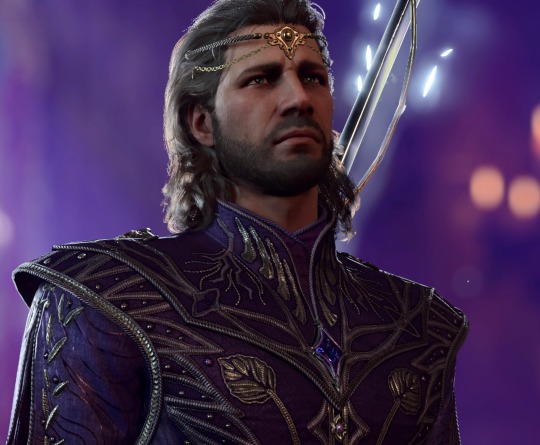
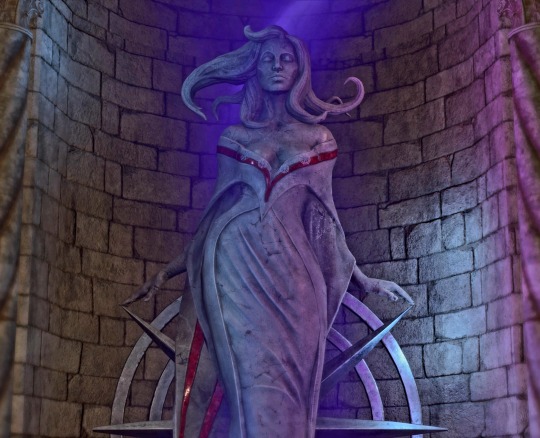
Religious trauma holds obvious weight with most characters in BG3, in subtle and unsubtle ways, but what resonates with me beyond even the queer experience with every flavor of Christianity and Evangelicalism is the way “mentors” use it to mask their own abuse. And yes, some of those mentors are gods.
Mystra is cold and formal with Gale in a way that reminds me of the abuse typical in art spaces specifically. A mentor who crosses lines of intimacy at their convenience, but is cold to you if they’re in any way displeased. The focus always comes down to YOUR GIFT and how YOU FAILED YOUR GIFT. This is an easier parallel for me to make because ultimately Gale reads as much as an artist as he does an academic. He’s not just interested in magical academia, he loves the ROMANCE of it. Even the way he speaks of his connection to the Weave smacks of inspiration and artistry, not rigid study and observation, “[...] could not only control the Weave, but compose it, like a musician or a poet.”
I suppose there is validity in interpreting Mystra as a reliable source, maybe she is just like this all the time and Gale was clouded by his service to her, maybe she means everything she says to and offers Gale. But that is not my interpretation (and I think that even in that interpretation there is no redeeming Mystra because she is still wholly uncaring of the serious power imbalance and just… TIME and EXPERIENCE imbalance between herself and a mortal man).
She tells Gale that what he lacked was patience… What exactly was patience meant to get Gale? Enough magical prowess that he would no longer want to be intimate with her or please her in a human way? Enough knowledge that he would stop requiring a sense of partnership from his god, who first connected to him as a child, who returned from her presumed death (assuming a rough DnD timeline here this is the best case scenario) to take either the initial special interest in him or an increased special interest in him, to teach him with special instruction, to feed off of his own skill or potential, to take him as a lover? Gale did not wish to prove himself to the public at large. Gale wanted to be enough for her. Gale wanted to give to Mystra as Mystra (per her claims and his interpretation) gave to him so that she would take Gale further into her world and be a real partner to him. There is not a level of patience that makes a man seeking an equal partnership with a GOD able to like… be chill about what that must require of him if a lifetime of devotion and proven skill doesn’t?
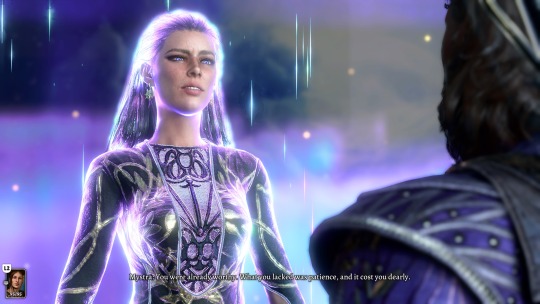
This is not to paint Gale as a man without mistakes. Of course he is flawed. Of course his choices are reckless and dumb. But he doesn’t intend to raise himself ABOVE Mystra until the Crown presents itself as an option and Gale sees that he could both save the world- particularly this new found family he cares about in a context outside of the pursuit of Weave academia, I imagine very new for him- and in his mind finally feel a sense of agency outside of his abuser, even if he still can’t really identify her as that*. Gale’s craving for validation and power is not- in my reading of this as a survivor of various DV/CA situations, salt and personal perspective to taste- inherently selfish. It exists BECAUSE of Mystra. Even some of Gale’s stories about chaotic childhood stories, depending on what he means by being connected to it at a young age, could still be from that influence. To modernize this, theater kids dramatically backstabbing theater kids via tattle-tells or sabotage is very often about the atmosphere and choices the drama teacher has on offer. They’re kids adapting to the space that was given to them.
“But such is Mystra’s Will” - Elminster the Enabler
Elminster provides such a specific frame for this dynamic, too. He is the kinder, more reasonable, more accessible mentor theoretically… but it’s like the “nice” parent in a narcissistic household as far as I’m concerned. Any kindness, leniency, or leveling with Gale is ultimately not about showing Gale kindness or teaching Gale. It is about enabling and supporting Mystra. “Just blow yourself up, you know how she gets.” “Well, you did remind her of Karsus and that hurt her feelings.” That kinda thing.
If your Tav pushes back the second time Elminster crashes your camp, he says something along the lines of, “yes, her actions seem cold and tyrannical but that’s because you’re a mortal. She’s a god, you can’t judge her actions.” If you made the narrative choices to get that response from Elminster, you and your Tav know that that is, for lack of a more graceful term, complete horse shit. Even the way Elminster approaches Gale and delivers the news is in service of Mystra’s coldness. Elminster appears as more of an equal to Gale, but he twists the knife in ways that Mystra can’t be bothered to. I do not interpret ambushing Gale, demanding comfort and catering, and then delivering the news that Mystra wants Gale to die with half-truths, guilt trips, and tsk-tsks as general wizard eccentricity. That is dickhead behavior. Elminster is not pained to deliver this news. He is honored to be the one chosen to do it.
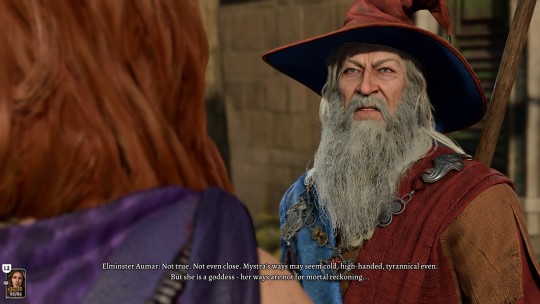
Gale’s motivation in pursuing the crown and wielding it himself, as he expresses in the Act III boat scene- and again, I can’t believe people read Gale as blindly ambition or egotistical- is that gods shouldn’t have the power that they do, shouldn’t be able to make us live for them and die for them. He speaks of gods using Ao as a shield or an excuse and in DnD lore I believe Ao is truly the only god that would outrank Mystra.
If Gale’s orb is truly a fragment created from Karsus’ attempt at godhood, I think we have to question Mystra’s relationship to Karsus. Early on both Gale himself and the game paint parallels between Gale and Karsus. Perhaps being chosen and the power imbalance and grief that entails is implied. For me, the narrative weight is better if it is. She speaks of allowing the orb to feed on the Weave as some sort of temporary measure, some gift to Gale, some great thing she is giving up… but if it is born of the Weave, ultimately, it is enabled by Mystra.
I don’t mean to imply that Mystra is walking around as a figure of deliberate cruelty. I’m sure in Mystra’s mind she thinks she is fair, measured, and even doting of her “chosens”. But that is not unlike any abuser- particularly in religious contexts, particularly in mentorship contexts- who grooms and crosses lines because they see “potential” in their victims. For Mystra, the potential of her Chosen does not offer them protection. It simply justifies (to her) that she can harness, wield, consume, and control them. Why else would they be so magically inclined, so skilled, so bright, if not for her to do with them as she will? In her mind, as both a goddess and arguably the Weave itself, Mystra may not even think of what she does as harming those below her for her own gain. She may see it as reasonable and necessary sacrifices to preserve magic. I won’t try to summarize 3e to present DnD here, but Mystra has died and been reborn several times, in questionable ways. She is a fractured entity, whatever you consider her, and could very well have indoctrinated HERSELF into the religion of herself, essentially. Mystra is arguably her own cult and cult leader (though almost always aided by Elminster).
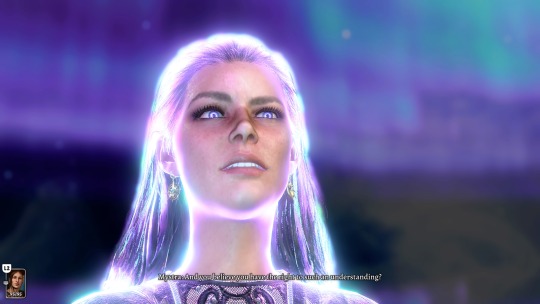
Karsus and Coercion
Mystra knows anything and everything that touches the Weave. Gale tells you point blank that Mystra would know he accessed the Karsus text, that just freeing it and reading it would be like shooting up a beacon. How does this interpretation stand if Mystra saw no signs of what she was doing to Gale, did not see him researching her prior death and fracturing? Could the same be true for Karsus?
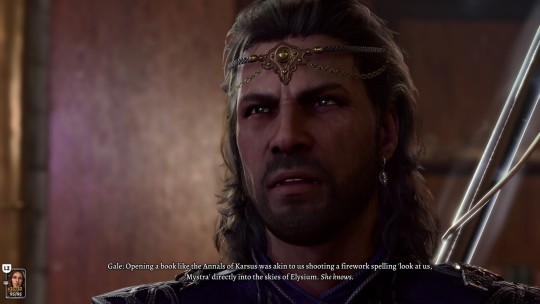
The Karsus fragments devour the Weave, but why? Do they intend to harm her? Are they desperate for her? Does it feel like agency? Is there an additional parallel between Karsus and Gale here - meaning, as Karsus sought to make himself god-like, to stand above Mystra, perhaps in some way Gale thought bringing Mystra lost fragments of her former self would at the very least mean that Mystra needed him, controlled him, fed off of him in whatever way less?
By Mystra’s own admission (I have not found this in game, I’m going from some Candlekeep lore and deity guides in 2e to now), those who use the Weave are to love the Weave, to do magic for the love of magic, to constantly explore and create new magic, anything to preserve and empower magic. So assuming that somehow Mystra legitimately has no idea when a Karsus or a Gale is setting out on a precarious path of potential godhood or at least hubris and hamartia, how then is Gale’s pursuit of the lost fragments of Mystra herself a violation? How even is Karsus' invention of his relics doing so? Mystra has the ability to cut the Weave off entirely for people, just as she had the ability the entire time to give the orb within Gale access to the Weave directly. This has me theorizing that perhaps, just as she condemned Gale to die when him EXACTLY FOLLOWING THE PHILOSOPHY SHE HANDED DOWN upset her for whatever reason, perhaps Mystra is why Karsus was pursuing higher magics in the first place, seeking to make up for some access he may have been denied after being suddenly cut off from her? Mystra does not set boundaries or make things clear. To be her Chosen does not seem to be a process of understanding and consent. It is thrust upon mortal men, in Gale’s case a mortal man she pursues a deeper emotional and sexual connection to, and then they are meant to “be patient” and anticipate what is or isn’t acceptable to her.
And ultimately, I want to end with this, in regards to some middling discourse I keep seeing around Mystra that I think is well-intentioned but disastrous if we apply it to the reality of imbalance power dynamics, abuse, and trauma with any sense of realism** -
Grooming is not just sexual - Mystra being the provider of the magic Gale is naturally inclined to is enough of a power imbalance from the jump. The man repeatedly responsible for enabling new forms of Mystra being a close mentor to Gale and possibly responsible for his education is in itself a gateway of grooming. Institutions and systems use grooming as a tool as well.
There is not an age at which you become immune to abuse or at which abuse is less abusive. Grooming and harming a teenager is neurologically different from doing so to an adult, but both are still incredibly common, and again, see number one.
Abuses within any system- be it a church, an outright cult, an educational system, a dojo, a theatre, a volunteer organization- are significantly harder to escape because the isolation and indoctrination are built in. Group-think, the affects of trauma on the brain, etc, legitimately stunt a person’s cognitive development in relationship to the subject. A god waiting until a wizard is of age to fuck him when said wizard has been attuned to and charmed by the magic that is a part of herself since childhood would certainly fall under this category.
There is not a way that Gale- or any real world person harmed on a scale of toxic relationship to outright abuse- can respond to abuse that legitimizes the introduction of abuse and coercion in the first place.
*note - depending on your Tav’s relationship to Gale, I DO THINK this is something Gale is beginning to identify… His comment when in a romantic partnership with Tav are that essentially everything he thought Mystra was is fading away because she condemned him to die when giving up the crown to her was always on the table, done after a year plus of shutting him out for his “folly,” and he speaks of "tenderness" and "feeling" from Tav, the subtext there being he knows now he never received that from Mystra but I want to leave room in this conversation for folks who didn’t romance Gale or didn’t romance him in service of the Gale the Man is Enough narrative to explore this topic
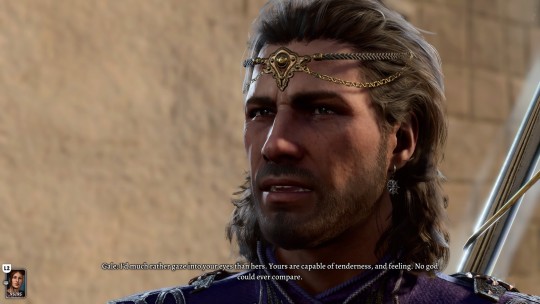
**Pretend is pretend and a valid way to explore so many things but as a survivor of various kinds of abuse who lives with C-PTSD every day, I think it’s important we apply some level of weight and realism to portrayals of these dynamics, even when the metaphor is literal magic, because 1- how we speak about abusers and the abused in fiction historically reflects our real world feelings on them, often to the point of LEGISLATION and 2- trauma should not be a sandbox for the unscathed to play in more than it should be a space for exploration, catharsis, and perhaps even healing for the many of us who have survived or are trying to survive those dynamics. If you don’t agree with that, that is technically legal but my interpretations will annoy you until the end of time always.
#gale of waterdeep#gale dekarios#mystra#gale dekarios meta#bg3 meta#baldur's gate 3#bg3#wolfling meta#roughly ~2400 words of meta#subheadings are as follows#1 mystra and abuse as mentorship#2 elminster as enabler#3 karsus and coercion#4 contextual truths about grooming and abuse
512 notes
·
View notes
Text
salty hugo nominee 2020 reviews: short stories
under a cut because long, etc
ranked roughly from “shit that made me the most annoyed” to “shit that made me the least annoyed”:
A Catalog of Storms by Fran Wilde
God did this ever not work for me. It must’ve worked for someone, I guess? To be nominated? But, what?
Look, the story was already on thin fucking ice when I was halfway through and I noticed the narrative wasn’t going much of anywhere. Then the storms started getting names like A Leaving and A Grieving and A Loss That’s Probably Your Fault and I rolled my eyes so far back into my skull that I had to wait a while for them to re-correct themselves so I could finish reading the damn thing. AN OVERWROUGHT AND NOT-EVEN-THAT-EVOCATIVE METAPHOR IS NOT A STORY, I want to nail on the office door of A Certain Subset Of Acquisitions Editors.
Ten Excerpts from an Annotated Bibliography on the Cannibal Women of Ratnabar Island by Nibedita Sen
Sigh.
Look, I know why everyone wants metafiction to be good. I’m a sucker for the meta and the contrary and the self-referential and the circuitous. In college I convinced some poor sucker of a professor to let me submit some horrifying 80-page metafictional thing about Andrew Johnson being a piece of shit, told via (among other things) histograms, MSN Messenger group chats, excerpts from a 2100 reactionary Civil War novel that does not exist, strangely erotically-charged letters between Johnson and various southern governors, excerpts from an anthropology textbook published in 2400 that also does not exist, and so on and so forth. That shit was delightful to write, so I get it, I do.
But I also don’t ask anyone to read my 80-page metafictional thing (except that poor professor, bless their soul), because when I reread it later, it wasn’t a story. Parts of it were an excuse to show off my own cleverness. Parts of it were almost a story—but I either couldn’t be assed to fill the full thing out, or I didn’t quite know how to full the thing out, or I just didn’t have the ballsiness to do so. Alas.
So, okay. In waltzes this particular story, a metafictional thingy told via excerpts from various books and websites.
And while this one didn’t enrage me with its mediocrity the way, say, STET did last year (an angry Facebook post that was only barely pretending to be a story), it also just isn’t much of a story. Weird spooky cannibal shit happens. Feminists be fightin’ with each other about intersectionality. Sure. But I feel like that’s just Tuesday afternoon on my Tumblr feed, not a proper story.
(I would be delighted to read a metafiction-y story that does manage to work for me, by the way. Hit me up with your best quirky metafiction-y shit. But this one wasn’t it.)
And Now His Lordship is Laughing by Shiv Ramdas
It’s like, fine. The prose is good. The right motions are made, mechanics-wise. There’s just not that much to the story.
This is actually a problem with most of the stuff I’m reading in SF/F zines these days. The prose is good, the prose is always reasonably good, and sometimes it’s so good I’d chop off my left pinky to be able to write some of the phrases they do. But the story part, too often, ends up being a nothingburger with nothingsauce. It’s obvious from the start that the colonial government is going to be horrid; it’s obvious from the start that Apa’s going to use some trick to get her vengeance; the only question is how. And the how wasn’t especially evocative or thrilling, to me.
Blood is Another Word for Hunger by Rivers Solomon
Y’know, this one is weird. You get a lot of points for being weird. It’s not quite Philip K. Dick levels of weird, and it could’ve benefitted from that level of weird. Like, if Sully’s gonna give birth to a bunch of previously-dead folks, I’d expect them to do some kinda weird shit, rather than just some amicable homesteading and then some Sully-planned murder, right?
What’s here is reasonably fun but I ache thinking about how much weirder and cooler it could’ve been.
Do Not Look Back, My Lion by Alix. E Harrow
This one was actually pretty solid adventure fantasy. Actually, it sort of gets me in a mindset of wondering—do I ask too much of SF/F short fiction? Like, I look at the Hugo nominees each year, and I’m always hoping to have my mind blown, my world rocked, and so on. But I dunno, the English-speaking SF/F world is only so big, my mind can only be blown so many times, and maybe something can just be a good romp & that’s perfectly deserving of an award on its own.
It does some stuff with gender, sure, and that bit’s pretty fun, but mostly it’s a cool story. Recommended if you’re into warrior chicks and/or healer chicks and/or those dating each other.
(BCS, as a venue, seems to select for a lot of this sort of thing. It’s not always revolutionary but it’s also always a story and I appreciate the shit out of that.)
As the Last I May Know by S.L. Huang
So we have a blatant ethics-of-nuclear-war metaphor going on. Lil’ trite and/or unsexy now that the Cold War’s over, but, well, the horrible threat of nuclear war never really went away, right? We just decided to ignore it in favor of other looming apocalypses. So sure, let’s ride.
I liked Tej in this story; I liked Otto Han; I liked how full a sense of their characters was evoked in such a small space. Something about Nyma didn’t quite land for me, though, and I can’t put a finger on why. I get why she’s relatively non-agenic, I understand the concerns and fears that drive her, but I just wanted something... more?
I dunno. Maybe I’m nitpicking. It was alright; I wanted more than alright.
Also, an ending like this is like when pop songs do that radio-edit lazy-fade-into-silence ending. C’mon, commit! The only time you get to do an ~ambiguous~ ending like this is when you’re writing “The Lady or the Tiger” and you want some middle school English class and/or some book club to argue ferociously over it. But endings are what elevate things from thought experiments to real stories; it’s the moment you gotta say, yeah, this is a thing about the world that I know and believe to be true.
6 notes
·
View notes